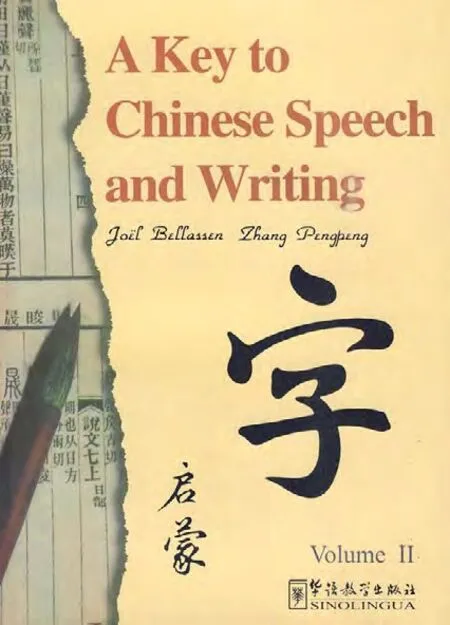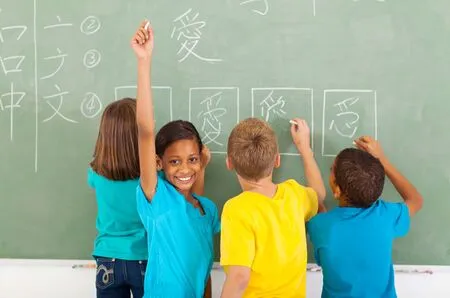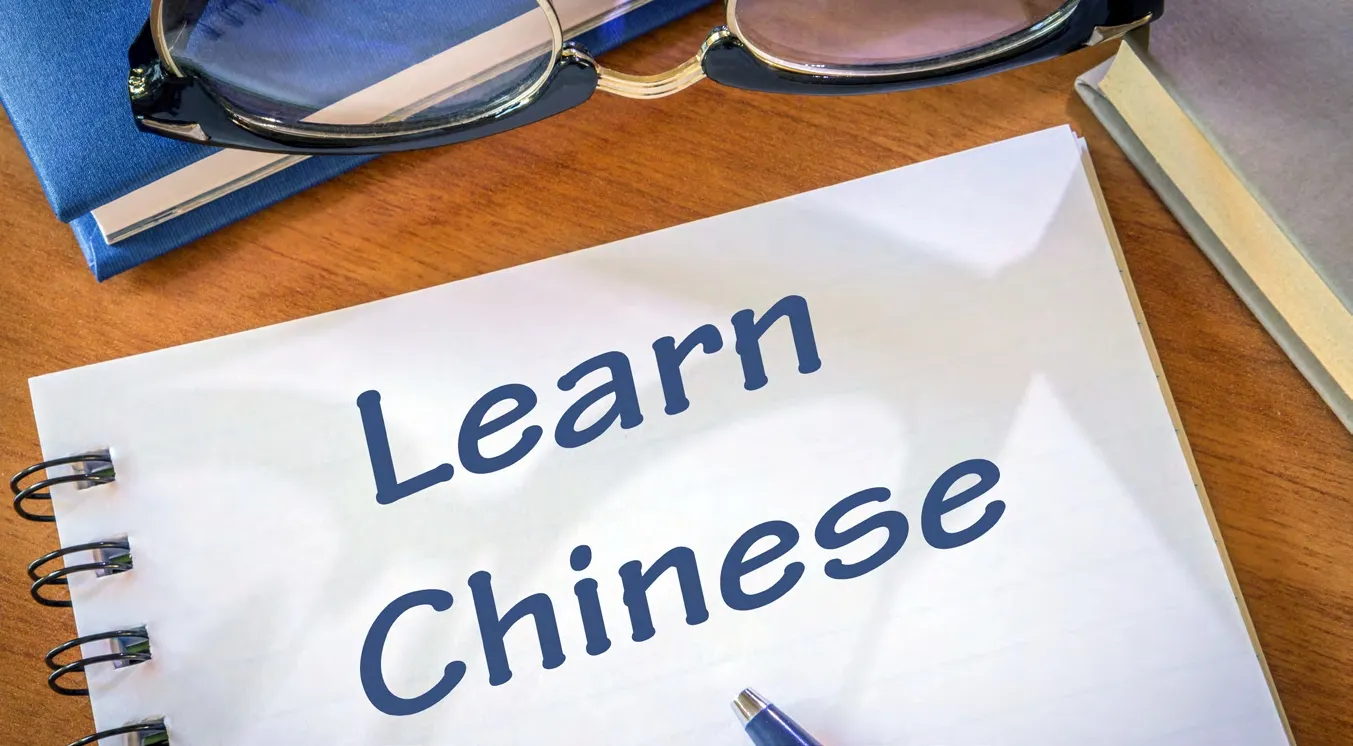Joёl Bellassen: I’ve Never Considered It Difficult to Learn Chinese
2019-07-20ByHeJunXieXiaoqinShangDan
By He Jun, Xie Xiaoqin & Shang Dan
“Please bear with me for anything amiss.” On May 19, 69-year-old Joёl Bellassen arrived at Wuhan University of Technology to participate in the “International Symposium on the Diversified Study of Language Policy in France.” With his humble attitude and standard spoken Chinese, he won himself the warmest applause from the first minute of his speech.
In France, Joёl Bellassen is synonymous with “Chinese language.” In 1969, he started learning Chinese in the University of Paris VIII. Before he graduated, cultural exchanges between China and France resumed, which sent him to China in 1973 as one of the first French students studying in China. Over the past 40 years, he has been working on the promotion, research and teaching of the Chinese language in France. From 2006 to 2016, he held the role of the first Inspector-General of Chinese Language Teaching at the French Ministry of Education.
白乐桑:我从不认为汉语难学
文/贺俊 谢小琴 商丹

A Key to Chinese Speech and Writing edited by Joёl Bellassen白乐桑主编《汉语语言文字启蒙》
“不足之处,请大家多多包涵。”5月19日,年近七旬的白乐桑来到武汉理工大学,参加该校主办的“法国语言政策多元研究国际学术研讨会”,谦逊的态度和一口标准普通话,一开场就赢得了掌声。
白乐桑在法国几乎是“汉语”的代名词。1969年,他进入巴黎第八大学攻读汉语。毕业前,恰逢中法恢复文化交流,1973年来华留学,成为首批前往中国的法国留学生之一。此后40余年里,他一直致力于汉语推广、研究与教学工作,2006年至2016年,任法国国民教育部首任汉语总督学。
在与我们的对话中,白乐桑道出了他的汉语学习理念,并对语言学习中的种种偏见提出了自己的见解。
曾借鉴中国的语文教学
记者:您被称为法国说汉语最棒的人,为什么会选择学习汉语?
白乐桑:这是我被问得最多的问题,现在还有人问。我当时学汉语,是因为别人不学,并没有功利的目标。20世纪70年代,在距离中国遥远的法国和欧洲其他地方,人们很难看到汉语能给一个人带来就业机会。学汉语应该与我的个人性格特征相关,一是我倾向于沟通;二是我更倾向于远距离的东西,比如远距离的语言与文化;还有就是我一直对外语很感兴趣。
记者:您是中法文化教育合作的推动者和见证者,也是法国教育部任命的首任汉语总督学,汉语学习如今在法国是什么情况?
白乐桑:汉语课堂在法国本土的所有学区都有。目前,法国约有700所初高中开设正规汉语课,有超过11万人在学习汉语。这11万人中,差不多有一半在基础教育阶段,这些学校把汉语作为正规的外语,不是兴趣班,也不是业余爱好;法国很早就把汉语作为正规科目,全世界第一个出台了纲领性文件,制定了汉语教学大纲和考试大纲。30年前,如果你跟学生家长说学汉语,他会说,开什么玩笑,现在他们会说,可以考虑。
During our interview, Joёl Bellassen shared his ideas of Chinese learning and cleared up some stereotypes in the course.
We Borrowed Experiences from Language Teaching in China
—You are considered the best French Chinese speaker in France. Why did you choose to learn Chinese?
I get this question a lot; people are still asking me this. I learned Chinese back then because no one else did. I didn’t do it for an immediate utilitarian purpose. In the 1970s, France and Europe were so far away from China that people couldn’t see any employment opportunities brought about by learning Chinese. I guess it has something to do with my personality. On one hand, I’m good at communicating with others. On the other, I fancy things far away from me, such as language and culture from a remote country. I’ve always had a lot of interest in foreign languages.
—You are the promoter and witness of Sino-French cultural and educational cooperation. You were also the first Inspector-General of Chinese Language Teaching appointed by the French Ministry of Education. Can you tell us what it is like learning Chinese in France these days?
Chinese classes are available in all school districts in France. At present, there are about 700 junior and high schools in France offering regular Chinese classes, and more than 110,000 people learning Chinese, among whom half are in their primary education. These schools have Chinese as a formal foreign language class, rather than just an extracurricular activity. France long ago set Chinese as a formal subject and introduced the first programmatic document in the world, as well as the syllabus for Chinese teaching and examination. Thirty years ago, if you talked about learning Chinese with parents, they would say, “you must be kidding,” but nowadays they’ll certainly consider it.
—Would you like to tell us more about your work in formulating and revising the syllabus for Chinese learning and examination in France?
Chinese is a formal subject under the foreign languages discipline in the primary education of France. When I was editing the syllabus, I referred to experiences gained in teaching other foreign languages in France, and expanded on the overall structure and corresponding philosophy. For example, I regard Chinese culinary culture and overseas Chinese culture in France as important cultural points, so I tried to help French people learn and understand Chinese language in these fields.
I have also referred to the syllabus for Chinese teaching and examination in China, and was inspired in terms of the tradition and history. For example, I was inspired by the thousandcharacter text, whose author was a genius in my opinion, since he realized that putting characters together helps with the learning process, and came up with a wonderful method by putting as many Chinese characters as possible in the shortest possible paragraph.

记者:请讲讲您对全法汉语教学大纲和考试大纲的制定与修改。
白乐桑:汉语在法国的基础教育中是一个科目,总学科叫外语。编写大纲时,我参考的是别的外语在法国是怎么做的,再根据总体的架构和理念来展开。比如,我把中国饮食文化、法国华侨文化等作为其中重要的文化点之一,帮助法国人学习和了解汉语。
我看过中国的语文教学和考试大纲,在传统和历史等方面受了一些启发,也做了一些尝试。像千字文就给了我一些启发,这位作者想到了一个妙法,在尽可能短的篇幅里放尽可能多的汉字,我觉得他是一个天才,意识到了字的集中有助于汉语学习。
从不认为汉语难学
记者:您觉得我们中国人在外语学习方面需要注意什么?
白乐桑:很多认识误区需要破解。我觉得一个比较流行的偏见是英语,大部分中国人把语言和文字混淆了,比如我受过高等教育,学过英语,也能简单读读学术性文章,但我听不懂美国电影,这算会英语吗?
类似的误区还有西餐,西餐其实是不存在的。比如你跟一个法国人说你在吃西餐,他听不明白,这明明是法餐的里昂菜系或东南菜系。如果你说都是西餐嘛,大同小异。他会发火:“我们跟英国人哪有共性?”没法定义西餐,但90%的中国人坚信有西餐,这必须纠正,因为不利于中国青年了解国外。
记者:不少人觉得汉语难学,网上也经常会有一些题目说“连中国人都被考懵了”,您觉得呢?
白乐桑:“汉语难学”也是一种误区。我走近汉语快半个世纪了,教学生有四十几年了,我从不认为汉语难学,也没说过汉语好学。每个科目都有难处,我没遇到过好学的外语。如果你说汉语有独特之处,掌握起来比任何其他文字时间长,我完全能接受。但说汉语难学,好像等于说其他科目好学。所以,不必要突出“汉语难学”。
现代化与保持传统不冲突
记者:现在中国的一些教学改革,突出语文阅读和深入理解的重要性。您怎么看?
白乐桑:加强阅读当然是好事,但是现在很多青年读的都是片段,比如短信,比如一分钟小说等,这会产生思维能力的不足。培养思维很重要的一点就是读全文,我的孙子现在七八岁,已经开始读大仲马的小说全文。
记者:您说过很怀念四五十年前的北京,那么,保持传统和现代化有冲突吗?
白乐桑:现在绝大部分中国城市,如果没有汉字,你不知道是在中国。如果你去法国,去意大利等现代化国家,很多地方的历史感和

I’ve Never Considered It Difficult to Learn Chinese
—What do you think Chinese people need to pay attention to in their foreign language learning?
There are many common misunderstandings among Chinese people, one of which is with English. The fact is, most Chinese people confuse spoken language with written language. For example, I received a higher education myself and learned English, so I can read simple academic articles, yet I can’t understand American movies—does that count as knowing English?
And then there is this misunderstanding about “Western food,” which does not exist. For example, if you tell a French person that you are having western food, they would be confused, because to him that is obviously Lyon cuisine or the southeastern cuisine in France. Now if you say that they are all Western food, similar to one another, the French guy would be angry: “We have nothing in common with the British? OK?” So there is no such definition as Western food, but 90% of Chinese people believe in the concept of Western food, which should be clarified, since it does not help Chinese youth understand foreign countries.
—Many people find it very difficult to learn Chinese. There are some test questions even many Chinese netizens consider too hard for them to work out. What do you say about that?
People say that Chinese is very difficult, but that is a misunderstanding as well. I have been working with the Chinese language for almost half a century, being a teacher for forty years, and I never considered Chinese difficult. Neither would I say that it’s easy. Every subject has its own difficulties, and I have never known a foreign language that is easy. If you say Chinese is unique in its own way and it takes longer to master it than other languages, I can accept that. When you say it is difficult to learn Chinese, it sounds like you mean it’s easy to learn other subjects. Therefore, it is just not necessary to emphasize the difficulty of Chinese.
Modernization Goes Hand in Hand with Tradition
—Nowadays we have pedagogic reforms in China highlighting the importance of reading and in-depth comprehension. What do you think of it?
Strengthening reading is of course a good thing, but nowadays what most young people read is fragmental, such as text messages, or one-minute novels, which will lead to a lack of in-depth thinking. Reading the full text is very crucial for cultivating one’s ability to think. My grandson is no more than eight years old and is already reading full books by Alexandre Dumas.
—You said that you miss the Beijing forty or fifty years ago. So, is there a conflict between tradition and modernization?
When I travel to many cities in China, I wouldn’t feel like I was in China if not for the Chinese characters I see. Yet if you go to some modern countries like France or Italy, you’ll find the touch of history and the characteristics of every place, since they are well protected and distinctive. Modernization does not necessarily conflict with the protection of traditions. We surely greet fast development, meanwhile we should also try to protect historic things.—What do you like about China? Do you have any living habits related to Chinese culture?
I like Chinese characters, square dancing, Chinese courtyards (Siheyuan), tai chi, morning exercise, Chinese chess, and the like, because they are special. I often wear Chinese traditional clothes. Interestingly Chinese people do not wear them. I think there is no such thing as advanced clothes or backward clothes.
(Translation: Lu Qiongyao)特色都保护得很好,不会让你错认。现代化和保持传统并不冲突,尽可能地保护有独特风格的东西,发展快也是可以接受的。
记者:您喜欢中国的什么,有没有保持一些中国特色的生活习惯?
白乐桑:我喜欢中国的汉字、广场舞、四合院、太极拳、晨练、围棋等,因为有特色。我经常穿中式衣服,奇怪的是中国人反而不怎么穿。我觉得服装没有落后与先进之分。
